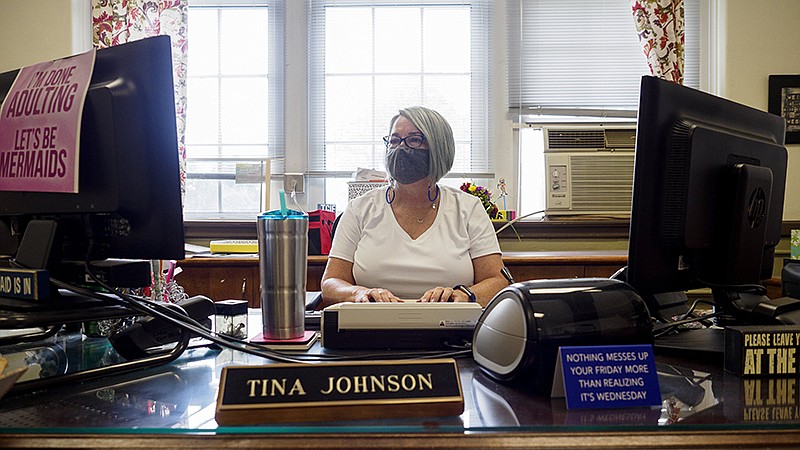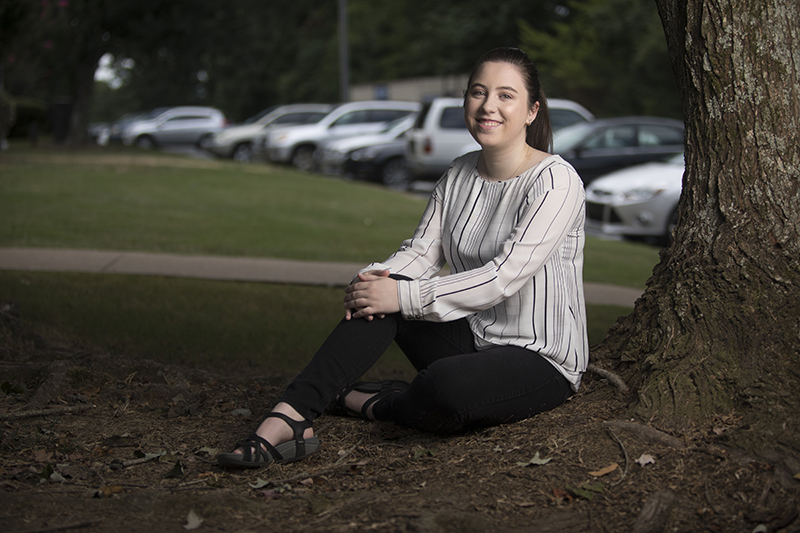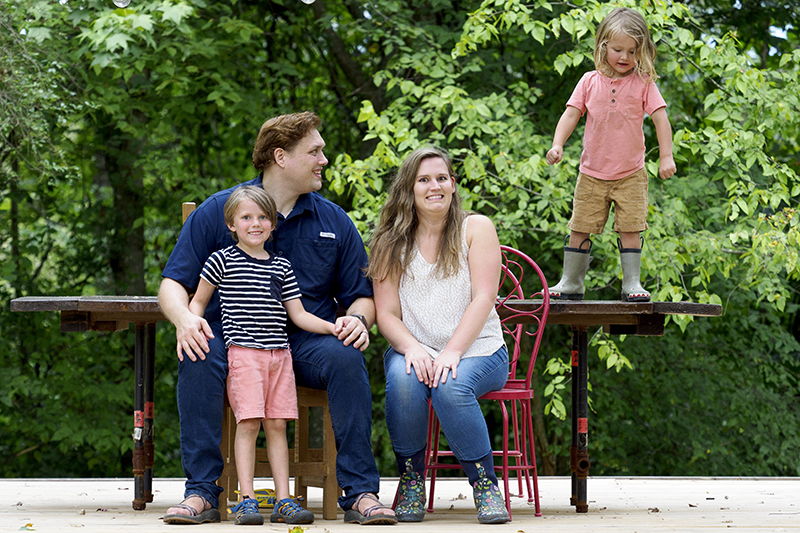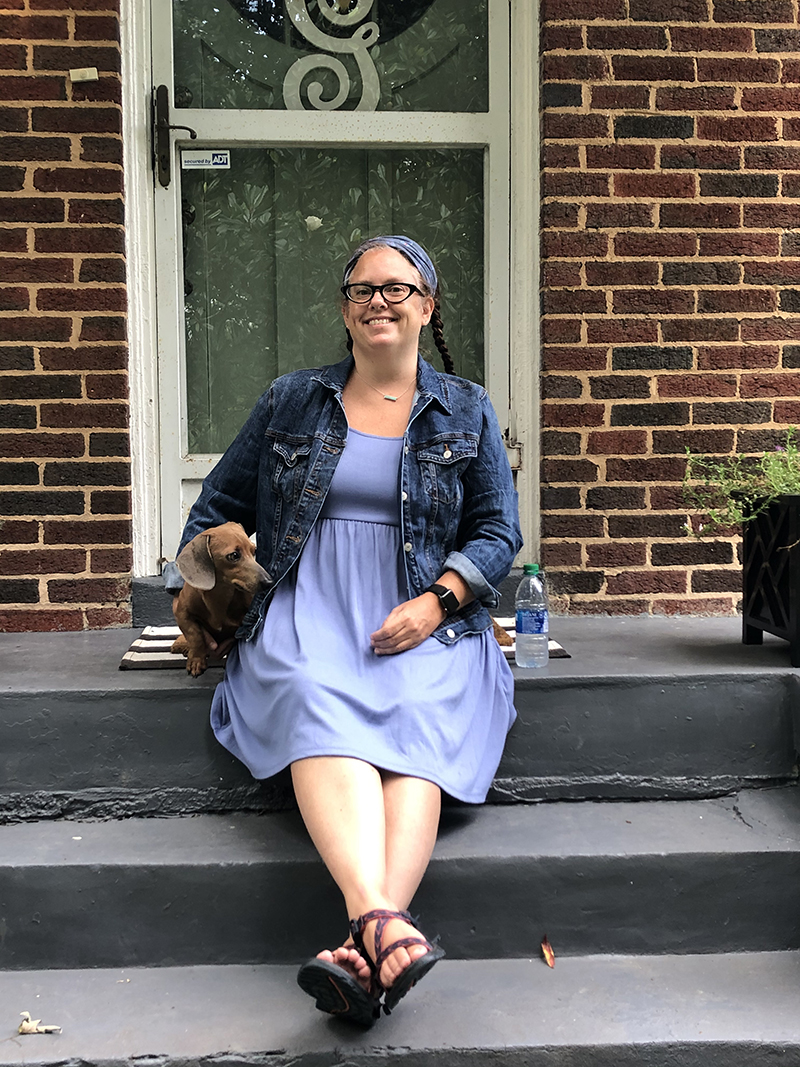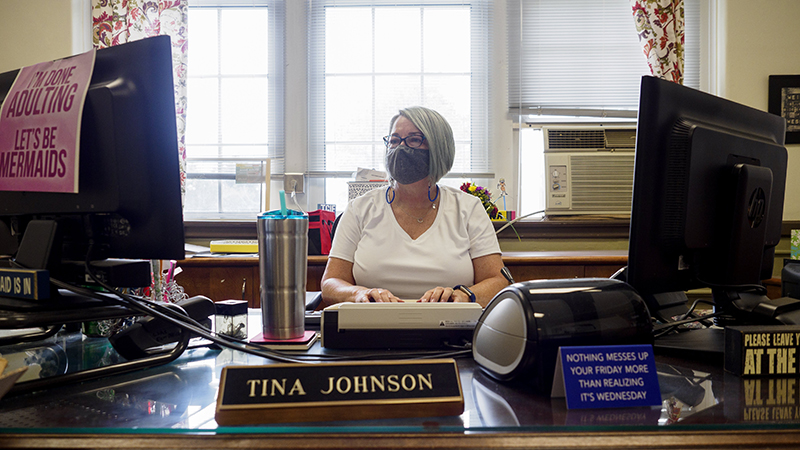Hannah Gossett planned to pursue a degree in English and creative writing after graduating from Ooltewah High School a couple of months ago.
Now she's not so sure of much of anything.
"I don't really know what I want to do anymore," says Gossett. "A lot is different now. It's just hard to make decisions.
"I'm not sure if it's the same with everybody, but I'm just kind of going with the flow."
Flowing along for a while may be a decision for many recent high schools grads. The future can be cloudy for many former seniors. But this year, the cloud may feel like nuclear winter.
Along with the stress most graduates feel as they leave the comfort of high school, this year they're facing a quagmire of problems: COVID-19. And the social unrest. And the wobbly economy. Even the toxicity of the presidential election.
Ethan Bixler, who just graduated from Baylor School, says his plans for the future "are in limbo."
"I was mainly looking forward to moving into college and going to new places. However, with this virus, I'm extremely uncertain, as anything could be canceled at any time," he says. "I try to stay optimistic about my future plans, but with all the change and strife that is happening, my optimism tends to be drawn down."
He's still optimistic enough that, even with his worries, he has begun his freshman year at the University of Tennessee at Knoxville Haslam College of Business. In an odd sort of way, what's going on around him has helped him lessen the transition.
"All that's going on in the world has distracted me from the normal nervousness of changing setting. I would like to believe that the current shape of this world has further prepared me for harder times in the future," Bixler says.
New Hixson High School graduate Braylon Beason agrees that his eyes are newly opened to "view the real world - how everything's changed and how you have to adapt."
"It does scare me a little bit," he admits, "but at the same time it makes me be on my toes about how everything is and be cautious."
Being cautious and on his toes is probably a good frame of mind since he's enlisting in the U.S. Marine Corps, his post-graduation plan from the beginning.
New generations begin every 18 to 20 years, so this year's graduates are the first in Generation Z, says Chuck Underwood, host of the PBS series "America's Generations" and author of "America's Generations in the Workplace, Marketplace, and Living Room."
COVID-19 is the gorilla in the room right now, so the next year or two will be scary for these young Gen Z'ers, but may actually be something of a blessing when it comes to their life, and especially their career, which often is the basis of a calm life or one filled with stress, Underwood says.
"COVID-19 is hitting Gen Z before they commit to mortgage payments, the expense of parenthood and perhaps car loans, and many can simply stay at home with Mom and Dad without too much disruption," he says.
Advances in medical science also have increased lifespans, so some Gen Z'ers may live to 100, giving them 80 years to recoup any salary they lose now, says Underwood.
While Gen Z'ers are staring at a unique set of challenges, members of each recent generation, starting with the baby boomers just after World War II and leading up to Millennials - the last generation before Generation Z - have faced their own realities when they graduated from high school. Some were good; some were OK; some were pretty rough.
Millennials
Underwood calls Millennials, who graduated high school between 2000 and 2019, "the generation that has simply been crushed in their career years."
While part of the problem was their "incessant job hopping in their 20s," he states, they've struggled through an unsteady economy for most of their lives. Then, just as things began to improve in the last few years, COVID-19 brought everything to a screeching halt.
Sarah Joyner, who graduated in 2010 from Chattanooga High School for the Creative Arts, says the economy at that time still affects the way she and her husband, Daniel, think about money.
"When we bought our house, we literally bought the cheapest house we could find. We didn't want the burden of a huge mortgage," says Joyner, a staff writer in the Office of Communications and Marketing at the University of Tennessee at Chattanooga.
The pandemic has brought a brand-new set of concerns. Her oldest son starts kindergarten this year and she's worried "about what that will look like, his safety and the safety of the teachers and other students at his school. It's definitely keeping me up at night," she says.
"But," she continues, "for the hazy long term, I'm optimistic. I'm hoping that we've all learned how to slow down more. I think [my family has] found a lot more hope and gratitude in our own backyard. I'm hoping we're not a one-off."
Generation X
Those in Generation X, who graduated between 1983 and 1999, had it pretty good. "They stepped into the 'Go-Go' economy of the 1980s and 1990s, fueled by the tech boom, a strong start to their generation's work years," Underwood says.
Heidi Gaines, who graduated in 1995 from Notre Dame High School, admits that she was able to coast for a while, "living pretty carefree still at my parents' house." She took many "wasted classes" at Chattanooga State Community College to keep them happy, but they eventually told her to quit sponging off of them.
"So it was time to get a 'jobby' job," she says.
Surprising herself, that "jobby job" was teaching.
"I skipped school so much that the last place I would have thought I would want to be was in a school building," says Gaines, now an exceptional-education teacher at Ivy Academy.
Like Joyner, the last few months have been stressful from many angles, but they've given her a chance to put on the brakes.
"I have been able to work in my yard, enjoy my fur babies, chat with my neighbors outside, have awesome virtual trivia nights with friends and, most of all, see what truly matters in life, and that's happiness, family and friends."
Baby Boomers
Boomers exploded right after World War II ended. The U.S. was the envy of the world. Nothing was seen as impossible. So boomers, who graduated between 1964 and 1982, never saw any reason to limit their dreams.
"They stepped into a thriving U.S. economy that was being led by the honorable, compassionate G.I. Generation. The sky was the limit," Underwood says.
Tina Johnson, office manager at Chattanooga School for the Arts and Sciences, can attest to that. After graduating in 1975 from Tyner High School, she felt "totally fearless."
"I knew I could do anything with determination and hard work. Not nervous at all. Bring it on. I loved new challenges and the results, whatever they were," she says.
Johnson, who is in her early 60s, says her age influences her feelings about COVID-19. She's not sure when - or if - things will ever be the same again.
"My husband and I are both in good health but do not feel the need to take chances," Johnson says. "I will be skeptical about 'getting back to normal.'"
Whatever their past experiences and whatever their hopes and fears about the future, members of every generation are suffering together through COVID-19, the protests and riots and overall uncertainty about where the world is headed.
Hixson High's Beason may express it best with a wish circling the entire globe:
"I'm just ready for it to go back to how it was."
____
Chuck Underwood has studied the various generations extensively, written books about them and hosts PBS' "American Generations."
"We don't join a specific generation until we graduate from high school, about 18 years old. By that time we have a solid set of values and, even though we grow and change, those values generally stick with us throughout life," he explains.
Those values - a reflection of the state of the family, country and world at that time - mark the divide between each generation.
Here, he breaks down each generation:
Baby boomers
Born 1946-1964; graduated from 1964 through 1982
The first batch that graduated in the mid-'60s to early '70s did so in a booming economy. America was roaring and ethical, so boomers were patriotic.
The younger boomers faced a world that was a little less optimistic with the economic downturn of the Arab Oil Embargo that began in 1973 as well as the Watergate scandal and the end of the Vietnam War, both of which created some economic uncertainty.
Key traits
* Soaring optimism and energy regarding their careers.
* Magnificent work ethic.
* Ready to make America better through their careers.
* Happy to work overtime and on weekends and accept transfers to other cities.
* First-time-ever hopefulness for their generation's women and Black citizens, thanks to the brand-new women's and civil rights movements.
* Their bosses, from the G.I. Generation and Silent Generation, were overwhelmingly ethical, compassionate.
Gen X'ers
Born 1965-1981; graduated from 1983 through 1999
This generation stepped into the "Go-Go" economy of the 1980s and 1990s fueled by the tech boom with only a quick recessionary dip in the late '80s. "A strong start to the work years," Underwood says. The economy was also fueled by the addition of women in career roles, the workplace taking away from home life, which meant this generation grew up largely on their own.
Key traits
* Entered adulthood skeptical of adults.
* Wanted to work 8 a.m. to 5 p.m. Monday through Friday.
* Did not want overtime, weekend work or transfers to other cities to disrupt their personal time.
* Bosses struggled with their attitudes, especially after welcoming young workaholic boomers during the prior two decades.
* The first tech generation, so they were optimistic about career opportunities.
* X'er women soared with hope and optimism. Men were more discouraged, especially as blue-collar jobs took a big hit from downsizing, offshoring and mergers.
Millennials
Born from 1982 through about 2001; graduated from 2000 to 2019
This generation was crushed in their career years, coming out of school right into the Great Recession. They were also hurt by their parents' over-parenting and their own job-hopping in their 20s. Younger ones who entered the job market in the past five years found a more robust economy - which has been wrecked by COVID-19.
Key traits
* Entered adulthood just as boomers had: energetic, optimistic, ready to improve the world with big ideas. A likable, happy, wide-eyed generation.
* Battered by the Great Recession, the first two decades of their careers were more difficult than any of the other generations' mentioned here.
* Technology, a flawed sense of entitlement and now COVID-19 further damaged their work skills.
Gen Z'ers
Born from 2001 through 2019; will graduate from 2020 through 2038
They are leaving the classroom into the COVID-19 quagmire, but they may have some advantages. They aren't incurring debt and they may live several decades beyond 80, giving them a lot of time to earn money. If the pandemic forces them to delay college or a job by a year or two, they'll be more mature, more focused and ready for their future when things return to normal, says Underwood.
Key traits thus far
* As kids, saw the U.S. economy recover from the Great Recession, so they're hopeful.
* Like their X'er parents, skeptical and cynical after witnessing corporate corruption/greed and dysfunctional government leaders in Washington, D.C.
* COVID-19 struck just as Z's oldest members stepped into adulthood, so there is uncertainty. But the pandemic "feels" temporary, so Z'ers won't be as emotionally and financially scarred by it as some media are suggesting. A one- or two-year COVID setback will ultimately prove to be only a blip on their screens.
* COVID-19 is striking before the financial burden of mortgages and children, so less financial pressure than on Gen X.
* Probably will live to be 100 and beyond and work for 70 to 90 years, so lots of time to make money.
